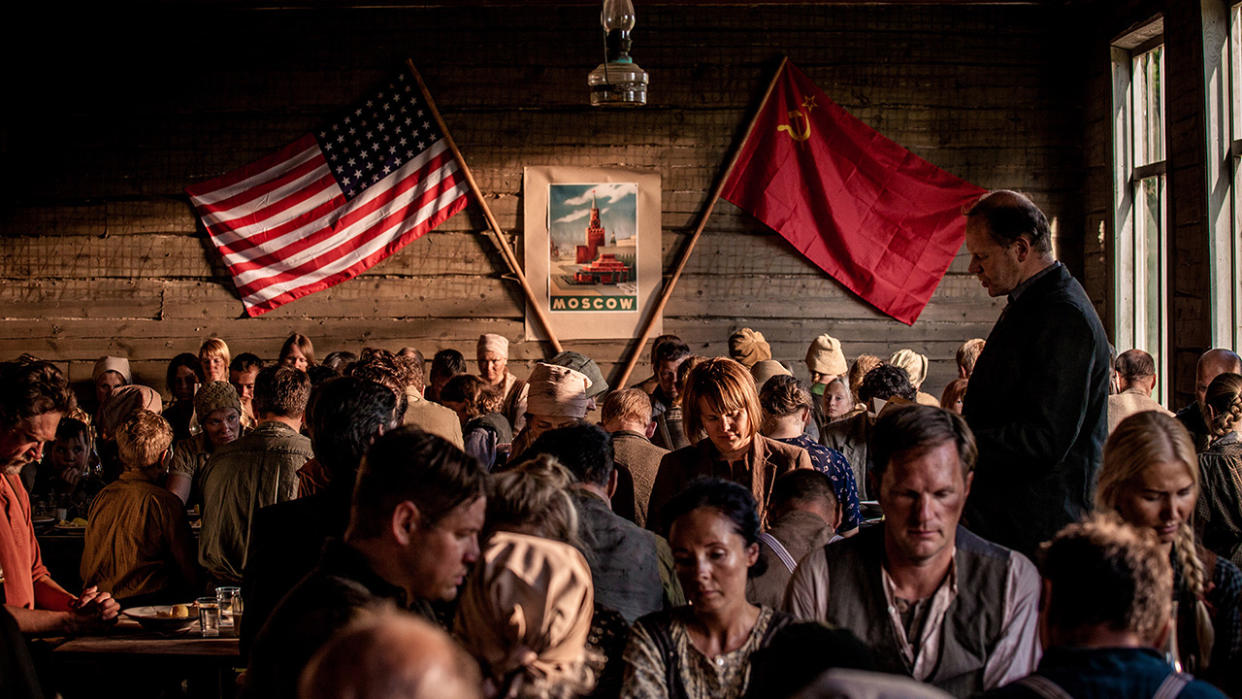Film Review: ‘The Eternal Road’

Nations, like superheroes, have origin stories. And it’s understandable why, in the centenary year of its independence, Finland would want to enshrine some of the history foundational to its national identity in the closest thing cinema has to statuary: the prestige historical drama. Finnish director AJ Annila’s previous two features fell squarely in genre territory — his debut was billed as “the first Finnish kung-fu movie,” while his second was a horror movie with the unmistakably Nordic title of “Sauna” — but here he steps up to the plinth of the expensive pan-regional co-production (the film was financed through Finland, Estonia, and Sweden, and has Danes, Finns, Estonians, and Swedes in its cast). And while he mostly succeeds, along with DP Rauno Ronkainen, in generating grand style — all granite jaws, period-accurate detailing, and silhouettes against sunsets — the focus on a rather blank, unsympathetic lead character means its heart is hollow.
Based on the book “Ikitie” by historical novelist Antti Tuuri, who adapts the work, along with Annila and Aku Louhimies, into a rather inert screenplay, “The Eternal Road” tells the based-in-fact story of forcibly exiled trade union leader Jussi Ketola (Finnish actor Tommi Korpela, most recently seen drolling it up in Aki Kaurismäki’s “The Other Side of Hope”). It is rural Finland in 1931 and family man Ketola is startled from his bed in the middle of the night by a gang of gimlet-eyed thugs who drive him off into the moonlit woods. This is the titular road — the route into neighboring Soviet Russia that Finnish right-wingers would force suspected communists to walk. Confusingly, although they’ve brought Ketola here, though, they decide exile is too easy, so opt for killing him. He takes off running, is shot, and wakes up in a Russian hospital, with instantly untrustworthy party functionary Kallonen (a magnificently odious Hannu-Pekka Björkman) looming over him.
Kallonen stymies all Ketola’s attempts to return to Finland, eventually coercing him into going to work on a nearby collective farm where he is to spy on the cadre of international idealists, who were lured there by the egalitarian, utopian dream of Leninist-Stalinist Russia, before it turned into a nightmare. Though reluctant, Ketola soon befriends the community’s leader, John Hill (Ville Virtanen), and makes himself useful raising barns and stonewalling Kallonen, while American widow Sara (Sidse Babett Knudsen) catches his eye. One night she comes to his room. “I came to light your candles,” she says.
It’s hard to warm to Ketola as the kind of hero who could warrant such epic storytelling. Much is made, at the outset, of his overweening desire to get back to his Finnish family. But then he has his candles lit by Sara, and suddenly they’re in church baptizing their newborn (the religiosity of the inhabitants, in vehemently secular communist Russia, is another tantalizing avenue barely explored). And a title tells us this is only 1932, and so Ketola appears to have pined for his Finnish wife and kids for mere months, before establishing a new family on the farm.
Knudsen, whose steely yet soft presence is otherwise a boon to the film’s underdeveloped female cast, is hobbled by an uneven Southern accent (she speaks, and occasionally narrates, in American English) that makes chewily distracting work of simple lines, like the offering of a hot beverage: “You wanna cuuhp of cow-fee?” But her role is also a thankless one, that mostly fades into the background once she and Jussi are together. In a rare moment of confrontation, she wonders if Jussi will leave her like he left his Finnish family. His reaction is to be hurt that she doesn’t know him any better — trouble is, neither do we.
And so while the run-ins with Kallonen, determined to designate the farm a nest of counter-revolutionary activity, become more frequent and ultimately lead to senseless violence, there is a marked absence of emotional stakes. In fact, it is witnessing the end of the idealism of decent people like Hill, who has in good faith led so many to believe in a monstrous lie, that is far more potent than anything involving Jussi, who seems to have few beliefs of his own.
You can kill a person, goes the old saying, but you can’t kill an idea. And yet that is exactly what happened here. The idea of collectivism, the idea that people could live and work harmoniously together for the betterment of the community, died in Stalinist hands as surely as did the men, women, and children, Finnish, American and otherwise, executed before open graves. Perhaps such explorations are not well-marked territory for the standard, glossy, period biopic this film wants to be, but as the gratingly twee closing song, “Rebel Girl,” wails out over the closing credits, we could wish “The Eternal Road” had taken the road less traveled.
Related stories
Tallinn Film Review: 'Secret Ingredient'
Subscribe to Variety Newsletters and Email Alerts!

